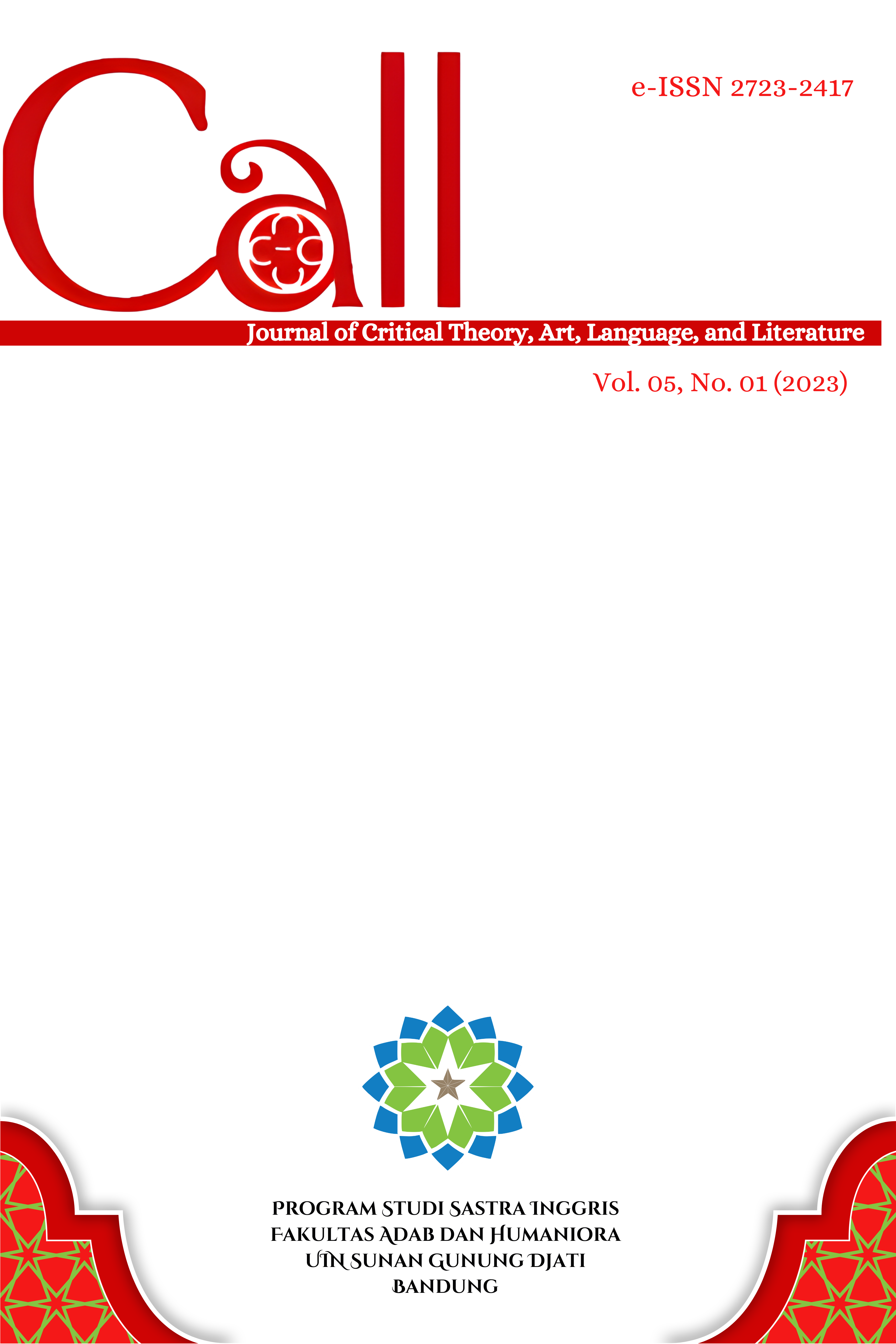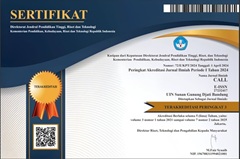THE BRITISH COLONIAL POWER IN GEORGE ORWELL’S BURMESE DAYS
DOI:
https://doi.org/10.15575/call.v5i1.15550Abstract
This study tried to discover British colonial power in George Orwell’s Burmese Days. Gramsci's hegemony theory regarding to a concept of an integral state was applied. A qualitative descriptive method was used in the study. Data in the study were dialogues and narratives from historical contacts between British and Burmese regarding the British colonial regime. The data consisted intrinsic element of theme, and 2 extrinsic elements of political society and civil society. Both elements were structure in literary works, and represent the British colonial power in George Orwell’s Burmese Days. A theme of colonial was found among the element of fiction. There were extrinsic elements such as political society and civil society. The study concluded that the intrinsic elements forming a story that could representative how the British colonial power appeared on theme. The relationship of both elements form totality of meaning and integrity that how the British colonial power operations in George Orwell’ Burmese Days.
Â
Â
Keywords: colonialism, hegemony, integral state, orientalismDownloads
Published
Issue
Section
Citation Check
License
Authors who publish in CALL agree to the following terms:
- Authors retain copyright and grant the journal right of first publication with the work simultaneously licensed under Attribution-ShareAlike 4.0 International (CC BY-SA 4.0) License that allows others to share the work with an acknowledgment of the work's authorship and initial publication in this journal.
- Authors are able to enter into separate, additional contractual arrangements for the non-exclusive distribution of the journal's published version of the work (e.g., post it to an institutional repository or publish it in a book), with an acknowledgment of its initial publication in this journal.
- Authors are permitted and encouraged to post their work online (e.g., in institutional repositories or on their website) prior to and during the submission process, as it can lead to productive exchanges, as well as earlier and greater citation of published work (See The Effect of Open Access).




